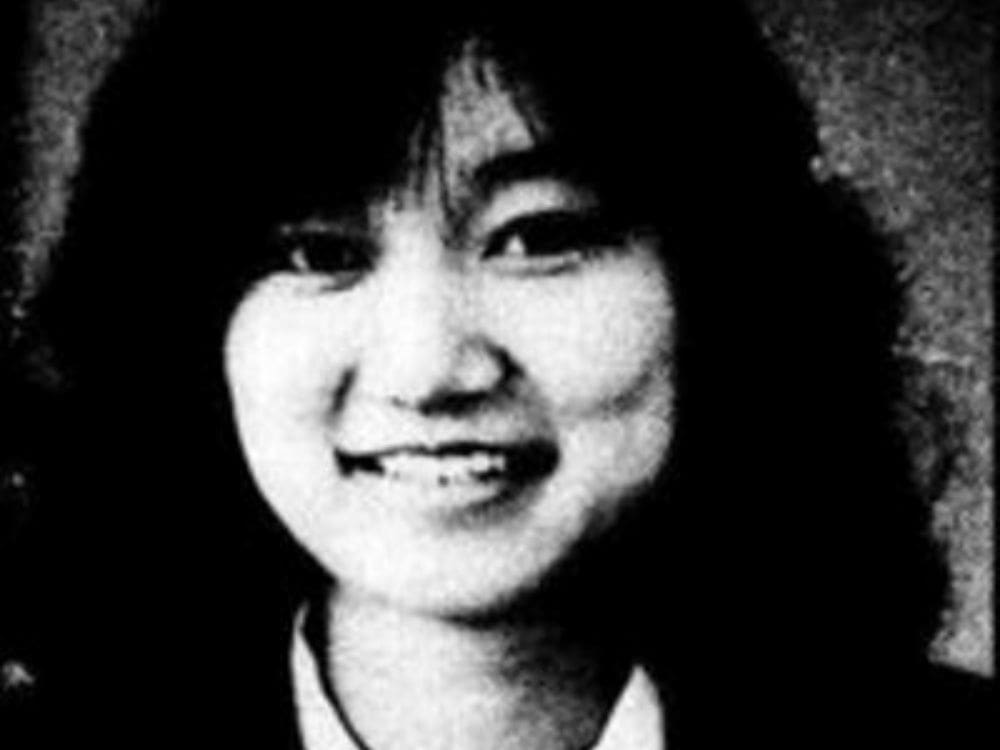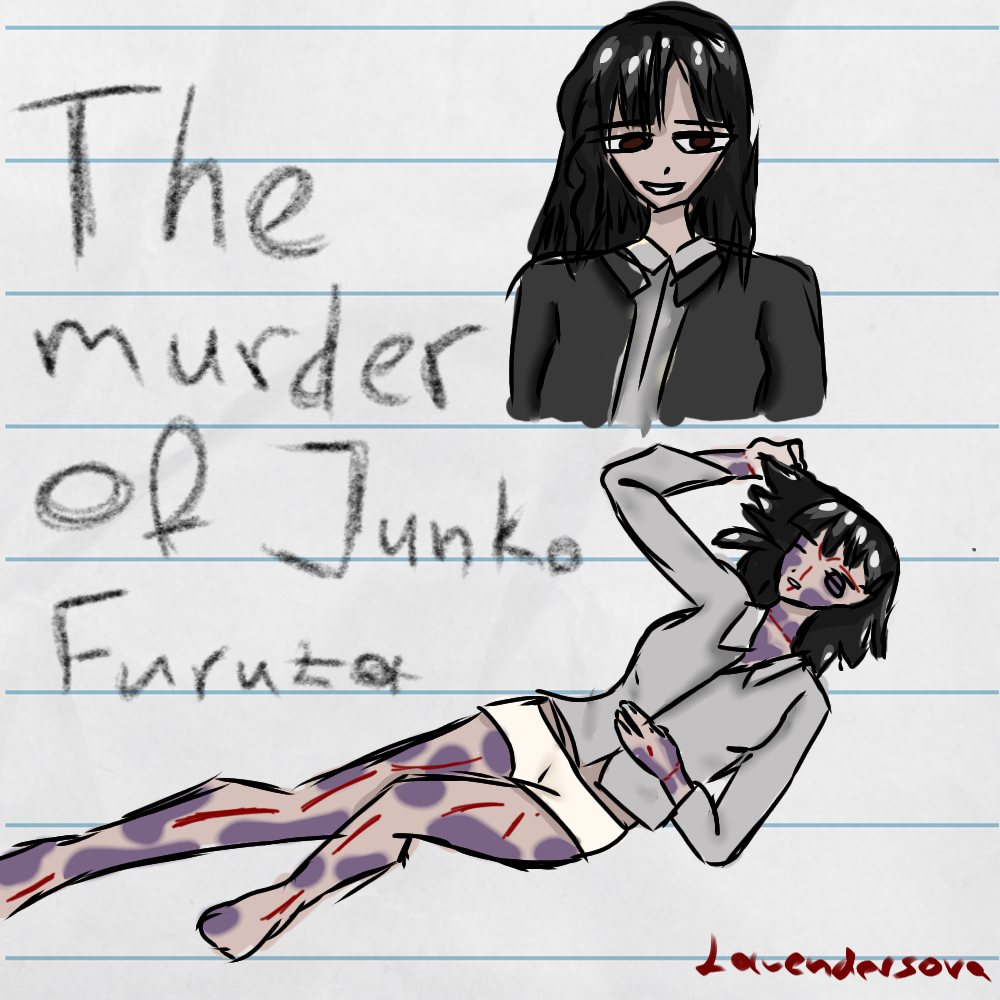Junko Furuta: A Dark Story That Shook Japan
When we talk about dark stories that left a mark on history, the name Junko Furuta often comes up. This is not just a story; it's a chilling reminder of humanity's capacity for cruelty. The case of Junko Furuta is one of the most disturbing and unforgettable events in modern Japanese history. It's a tale that has haunted the nation and continues to resonate even today.
Imagine being a 14-year-old girl, living your life like any other kid in the neighborhood. School, friends, family—life seemed normal. But for Junko Furuta, that normalcy turned into a nightmare that lasted for weeks. Her story is a painful lesson about the importance of safety, vigilance, and justice.
It's not just about the events themselves; it's about the impact they've had on society. The case of Junko Furuta forced Japan to rethink its laws, security measures, and how it protects its citizens, especially the vulnerable. This is why her story is so important, and why we need to understand it better.
Read also:Billy Pauls Net Worth At Death A Deep Dive Into The Life And Legacy Of A Music Legend
Biography of Junko Furuta
Early Life and Background
Let’s take a step back and understand who Junko Furuta was before her tragic story unfolded. Junko Furuta was born on October 20, 1970, in the city of Kawaguchi, Saitama Prefecture, Japan. She was an ordinary teenager with dreams and aspirations, just like anyone her age. Her life, however, took a tragic turn when she became a victim of one of the most heinous crimes in Japanese history.
Here’s a quick glance at her background:
| Full Name | Junko Furuta |
|---|---|
| Date of Birth | October 20, 1970 |
| Place of Birth | Kawaguchi, Saitama Prefecture, Japan |
| Age at the Time of Incident | 14 years old |
| Occupation | Student |
The Incident That Changed Everything
What Happened to Junko Furuta?
On November 25, 1988, everything changed for Junko Furuta. She was abducted by four teenage boys after a volleyball match at her junior high school. The boys, aged between 14 and 17, lured her into their trap by pretending to offer her a ride home. Instead of taking her home, they took her to an abandoned house where they held her captive for 44 days.
During this time, Junko endured unimaginable horrors. She was subjected to physical and psychological torture, and the boys even forced her to write letters to her family stating that she was safe. The situation was dire, and it’s a story that continues to shock people even today.
The Role of Society and Justice
How Did Society React?
When news of Junko Furuta's ordeal broke, it sent shockwaves through Japanese society. People were horrified by the brutality of the crime and the fact that it was committed by teenagers. The case sparked widespread discussions about the state of youth in Japan and the need for stricter laws to protect children.
- The Japanese government was forced to review its legal system.
- There was a push for more education on crime prevention and awareness.
- Communities began to organize safety initiatives for children.
The Legal Aftermath
What Happened to the Perpetrators?
The legal proceedings that followed Junko Furuta's case were intense and highly publicized. The four boys were eventually arrested and tried as juveniles due to their age. However, the severity of the crime led to public outcry over the leniency of the sentences.
Read also:Deephotlink Your Ultimate Guide To Unlocking Hidden Depths
Here’s a summary of what happened to each of the perpetrators:
- One of the boys committed suicide before the trial.
- Another was sentenced to life imprisonment.
- The remaining two received sentences ranging from 15 to 20 years in prison.
Impact on Japanese Society
Long-Term Effects of the Case
The impact of Junko Furuta's case on Japanese society was profound. It led to significant changes in the way crimes against children were handled. The case highlighted the need for better protection mechanisms and more severe punishments for juvenile offenders.
Some of the key changes included:
- Amendments to the Juvenile Law to allow for harsher sentences.
- Increased funding for child protection services.
- Public campaigns to raise awareness about child safety.
Lessons Learned from Junko Furuta's Story
What Can We Take Away?
Junko Furuta's story is a painful reminder of the importance of vigilance and safety. It teaches us several valuable lessons:
- Children need to be educated about stranger danger and personal safety.
- Societies must ensure that their legal systems are equipped to handle severe crimes, regardless of the age of the perpetrators.
- Community involvement is crucial in preventing crimes against children.
Memorializing Junko Furuta
Remembering a Tragic Life
Efforts have been made to remember Junko Furuta and honor her memory. Memorials and educational programs have been established to ensure that her story is not forgotten. These initiatives aim to prevent similar tragedies from occurring in the future.
One of the most notable memorials is the "Junko Furuta Memorial Park," which serves as a place of reflection and education for future generations.
The Legacy of Junko Furuta
Her Story in Modern Times
Even decades after the incident, Junko Furuta's story continues to resonate. It serves as a cautionary tale about the dangers that children face and the importance of safeguarding them. The case has inspired numerous documentaries, books, and films, keeping her memory alive.
Her legacy lives on in the changes it inspired in Japanese society and the global conversation about child safety.
Conclusion: A Call to Action
In conclusion, the story of Junko Furuta is a sobering reminder of the importance of safety and justice. It’s a tale that demands our attention and action. We must continue to advocate for stronger protections for children and ensure that such tragedies never happen again.
I urge you to share this story, educate others, and support initiatives that aim to protect children. Together, we can honor Junko's memory by making the world a safer place for all.
Table of Contents
- Biography of Junko Furuta
- The Incident That Changed Everything
- The Role of Society and Justice
- The Legal Aftermath
- Impact on Japanese Society
- Lessons Learned from Junko Furuta's Story
- Memorializing Junko Furuta
- The Legacy of Junko Furuta
Remember, every story has the power to change the world. Let’s make sure Junko Furuta's story leads to positive change.
Article Recommendations


